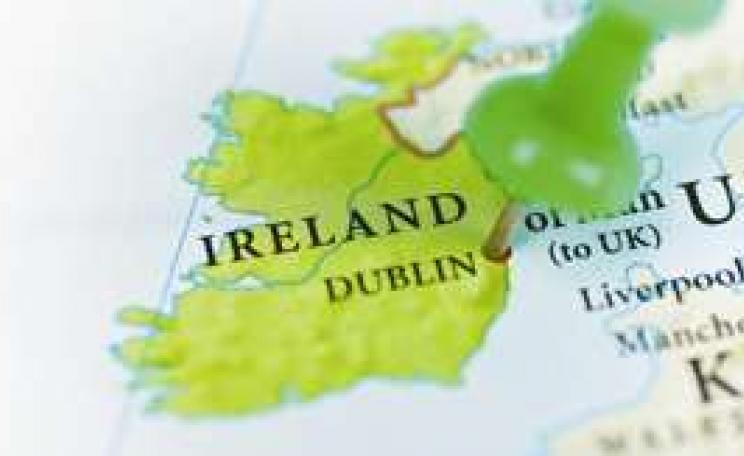Half the point of the World Trade Organisation is that hardly anybody understands it. Its founding documents are hundreds of pages long, its committees and subcommittees proliferate endlessly, its language is obtuse, and the end result is that anyone who doesn’t work there, study it for a living or have several years of hard graft as a trade lawyer behind them has a lot of trouble working out what the hell is going on. Modalities. Appelate bodies. Singapore issues. Built-in agendas. Single undertakings. Got it? No? Good.
Conveniently, this has meant that for the entire eight years of its existence most of us have had a hard time working out what effect the WTO’s corporate-led agreements will actually have on our lives – at least until it’s too late. And there’s no reason this should change now. Thus it is that when we try to find out what decisions are actually likely to be made at the WTO’s upcoming ministerial conference at Cancun – and what difference they are likely to make in the real world – the answer can seem as hard to fathom as the outcome of the WTO’s recent ruling on ‘anti-dumping duties on corrosion-resistant carbon-steel flat products from Japan’ (pay attention at the back).
Nevertheless, if we persevere we can dimly make out – through the shifting fog of tariff preferences, compliance rulings, technical co-operation and countervailing measures – the approach of a whole regiment of decisions and pre-decisions that, if they are made as planned at Cancun, will expand the project the WTO has been engaged in since it began life in 1995.
That project is to extend the organisation’s remit far beyond trade to cover almost every aspect of the global economy and, in the process, create new rules that would tie the hands of governments and free those of corporations – effectively redistributing power from the elected to the unelected. And we can take more than an educated guess at what the effects of this would be on our everyday lives.
Likely Cancun Outcome 1
Ability of corporations to sue governments when ‘denied’ investor rights.
Would it bother you if corporations were given the legal right to sue your government for the inconvenience of having to abide by your country’s laws? Would you mind if, faced with such pressure on a regular basis, your elected representatives started to water down or remove your environmental and social protection laws so as to keep multinational companies happy?
If so, then start worrying about the upcoming discussions at Cancun on the so-called ‘new issues’. Led by the European Union, some governments want to begin discussions at Cancun about how to turn four new WTO subjects into international law. The topics themselves sound as numbingly dull and technical as most of the WTO’s agenda: investment, competition, government procurement and trade facilitation. As ever, though, the language conceals the potentially enormous impact that these negotiations could have on people’s lives.
Of these four topics, one in particular stands out: investment. That seemingly innocuous word could be used to justify a new WTO agreement that could prove more dangerous – and controversial – than anything yet seen. NGOs are already mobilising against this possibility; more than 40 of them from all over the world signed a statement in March demanding that investment negotiations are not launched at Cancun. They, and many others, fear the rebirth of the notorious Multilateral Agreement on Invest-ment (MAI), a treaty that was drawn up by corporations and launched behind closed doors in the 1990s.
Had it gone ahead, the MAI would have allowed multinational corporations to sue national governments if the corporations felt they had been denied ‘investor rights’. It would have gutted government control over where and when foreign companies invested in their countries. It would have banned governments from supporting local or national investment over that of multinationals. In short, it would have removed virtually all the power of elected local and national governments to control how multinationals invested and behaved in their countries.
Fortunately, the MAI was killed off in 1998 by an international NGO campaign sparked by a leak of a negotiating text of the treaty. But those corporations and governments that were pushing for the MAI in the 1990s are now using the WTO to try and put something similar into practice.
What would it mean if this were to happen? A good place to go to find out is Canada, one of the three countries, along with Mexico and the US, that are part of the North American Free Trade Agreement (Nafta). Nafta contains Chapter 11 – a highly controversial ‘investor rights’ clause that is similar to the MAI proposals, and which may form the basis of any new investment agreement at the WTO.
The premise of Chapter 11 is frighteningly simple: if a government prevents a foreign company from investing in its country, or if it changes any conditions affecting its investment once it has arrived, that company has the right to sue the government for ‘compensation’ for any lost or potential profits. The reason for the government’s action doesn’t matter; whether the government is trying to protect the environment, enforce labour or planning laws or promote local economies – even if it’s all legal –, a company can sue. Chapter 11 is the first international agreement that allows corporations to sue governments. The MAI was supposed to be the second. The WTO may be about to claim that honour instead and take it global.
Does it matter? Ask the people of Canada, Mexico and the US. Chapter 11 has massively undermined their democratic rights, and has been used by foreign corporations to systematically undermine their national environmental and health regulations (see box opposite). Corporations there can now define environmental laws, health regulations and other limits on their investment activities as ‘appropriation’ of profits they might have made if those laws were not in place. By suing governments they can effectively demand payment for having to abide by the law. Any new investment law that comes out of the WTO may contain a similar clause; that’s certainly what corporations want. The results of that happening would be disastrous. Corporations could sue our elected governments for daring to protect our countryside or for regulating what goes into our food and the quality of the air we breathe. Our governments would be faced with a choice: compensate the corporation, with our money, for the inconvenience of having to obey the law, or change the law until it suits the corporation.
Likely Cancun Outcome 2
Public contracts forcibly opened up to international competition
How does your government spend your money? Who does it hire to clean your hospitals, cook your school dinners, build your roads, equip your police force? Does it give preference to local firms? Does it employ voluntary organisations? Does it source the things it buys from your own country, to help boost your economy? If so, it may not be allowed to do so for much longer – by order of the WTO.
Another of the ‘new issues’ being pushed in the run-up to Cancun is ‘government procurement’, which in English means ‘the things your government buys, for public use’. At the moment, it’s up to governments to decide how they spend tax-payers’ money. Many of them spend it in ways that deliberately support native industries, traditions, companies and products. Fair enough, you might think; it’s their money. But at Cancun, some governments are lobbying for the WTO to set up a new agreement on ‘transparency in government procurement’. Opponents of this proposal say it is the thin end of a wedge that would lead within a few years to new WTO rules to force governments to open up all their purchasing decisions to international competition.
Government procurement can amount to up to 12 per cent of a country’s GDP. That’s a huge market. Unsurprisingly, multinational corporations are eager to access this market by requiring governments to give them equal treatment in spending contracts.
When the UK’s Department for Education and Skills decides who will be employed to run school canteens, for example, it wouldn’t be allowed to simply choose a local firm; it would have to allow foreign corporations to bid for the contract. McDonald’s in your nurseries, anyone? KFC school dinners? It already happens all over the US. Why not here? And why not Nike making police uniforms or Starbucks providing hospital meals? This is what corporations are aiming at. It’s nothing at all to do with trade – it’s about forcing corporate activity into ever more areas of our lives, whether we need it or not.
Likely Cancun Outcome 3
Public services handed over to corporations.
How do you feel about your public services? Would you like them to stay public? Or would you prefer it if they were forcibly prised open to foreign corporate competition by way of a new international law? All in the name of trade, of course.
The WTO’s General Agreement on Trade in Services (Gats) would allow for the ‘liberalisation’ (ie, the deregulation and potential privatisation) of ‘services’. It would apply to many key public services in countries with public healthcare, education, transport, welfare, water and energy systems. Gats was proposed when the WTO began life in 1994, and is due to be finalised by the end of 2004. In the meantime, negotiations on the final agreement are progressing in secret. They are due to be reviewed at Cancun, where the WTO will undertake a ‘stock-taking’ of Gats’ progress. Governments and corporate lobbyists will undoubtedly use Cancun as an opportunity for some more arm-twisting on Gats.
They have a lot to win by doing so, for governments have recently been submitting to the WTO the list of services that they are willing to open up to foreign corporate competition – and the list of those services in other countries that their companies want to get their hands on. The EU recently submitted its own list of requests to the WTO. The list was promptly leaked to NGOs, and shows what you will have to contend with if you are the resident of any of the countries that Europe’s multinational lobbyists have their beady eyes on. The EU wants its companies to be granted access to the water provision, telecommunications, energy and transport networks of 109 of the world’s poorest countries.
The effects of this could be enormous. Imagine, for example, that you are a resident of the Bolivian mountain city of Cochabamba. Imagine that you were one of the thousands of people who took to the streets there in early 2000 – protesting at the sell-off of your city’s water system to the US multinational Bechtel, which raised your water bills by up to 300 per cent (and is now being paid by the US government to rebuild Iraq). Imagine that you had celebrated with the rest of the city after your protests had driven the corporation out and led to the water system being taken back into public ownership – an unprecedented reversal of a major privatisation. Now imagine how you would feel were you to learn that the EU has requested that the Bolivian government should open up all its water delivery systems to foreign corporate competition under Gats. If that were to happen, it would be enshrined in the text of an international treaty that your government, even if it wanted to, would have no power to reverse.
If you live in Europe and can’t or won’t imagine this, there are effects closer to home that you might like to consider. For, wherever you are, you’re not safe from Gats; it is European corporations, not European citizens, whose interests it promotes. If you live in Britain, for example, you might be interested in the list of your public services that other WTO members would like their corporations to mount a snatch-and-grab raid on. The list includes your postal service, your railways (as if privatisation hadn’t ‘improved’ them enough already) and your public service broadcasting (otherwise known as the BBC, which Murdoch et al have been itching to get their hands on for years). Sweet dreams.
This is the story of Cancun – the story of a continuing power grab by private corporations operating under the fig leaf of the World Trade Organisation; a global colonisation of pretty much everything by profit-seeking private interests. And this is the key thing to grasp: this is not about ‘trade’ at all; it’s about power and who gets it. Governments or corporations? Ordinary people or profiteers? The answers to those questions will affect all of our lives.
Paul Kingsnorth’s book, One No, Many Yeses: a journey to the heart of the global resistance movement, is published by the Free Press, price £10. To find out more about the book, visit: www.paulkingsnorth.net
WTO’s record to date: environment and health laws overturned
The US Clean Air Act
Following a challenge initiated by the governments of Venezuela and Brazil on behalf of their oil industries, the WTO ruled in January 1996 that regulations of the US Clean Air Act violated world trade rules.
The regulations in question required domestic and foreign gasoline refiners selling to the US market to make cleaner petrol in order to reduce health-threatening air pollution. Venezuelan and Brazilian refiners objected to the costs involved with upgrading their refineries to produce cleaner petrol.
The WTO panel and appellate body adjudicating the case ruled in the refiners’ favour, finding that the US failed to prove it had used the ‘least trade-restrictive’ measures to enforce its standard. Because of the WTO ruling, the US Environmental Protection Agency has been forced to lower its standard and allow oil refiners to sell gasoline that is dirtier than the US 1990 industry average. Air quality has deteriorated as a result.
The US Endangered Species Act
In 1998 the WTO overturned a section of the US Endangered Species Act requiring all shrimp sold in the US to be harvested using relatively inexpensive turtle-excluder devices that reduce sea-turtle deaths (of which there were 150,000 in 1998) by as much as 97 per cent. The WTO argued that the regulations represented an unjustified discrimination against free trade. The US has changed its regulations to comply.
The EU beef-hormone ban
Since 1988 the EU has banned the sale and import of beef from cattle treated with artificial growth hormones, which EU studies show increase the risk of illness in both treated animals and in the humans who consume them. Even though the ban applies to domestic and foreign beef alike, a complaint from the US and Canada (the principal exporters of hormone-treated beef) led to two WTO panels ruling that the ban is illegal. The panels ruled that the ban had been taken in advance of scientific certainty – which is forbidden under provisions of the WTO’s Agreement on Sanitary and Phytosanitary Measures; it would have to be lifted. After the EU refused to comply, the WTO granted the US permission to impose $116.8m in retaliatory sanctions for each year that the ban is in place.
NAFTA, CHAPTER 11 victims
Chapter 11 has been successfully used by the US-based Ethyl Corporation to force the Canadian government to overturn a ban on the sale of Ethyl’s gasoline additive MMT. The latter is banned in a number of other countries and was described by Canadian prime minister Jean Chretien (pictured) as a ‘dangerous neurotoxin’. Using Chapter 11, Ethyl gave the Canadian government two choices: change the law, or get sued on the basis that it constituted an ‘expropriation’ of Ethyl’s Canadian current and future investments. Chretien’s government changed the law and provided Ethyl with $13m and an apology in compensation. If you are a Canadian, you breathe in the results of this decision every time you cross the road.
Ethyl is not alone. US waste-disposal firm SD Myers also had its eye on Canada’s strict waste and health-protection laws. The company produces PCBs, hazardous chemicals whose export had been banned by Canada in accordance with international law. Myers sued the Canadian government for $50m, and won.
Another US company, Sun Belt Inc, is suing the government of British Columbia (BC) for banning the export of water from the province. The BC government has banned water exports for environmental reasons. Sun Belt is a water exporter and claims the elected government of BC is ‘appropriating its assets’. It is seeking $220m in damages. ‘Because of Nafta, we are now stakeholders in the national water policy in Canada,’ explained Sun Belt’s chief executive starkly.
This article first appeared in the Ecologist June 2003







